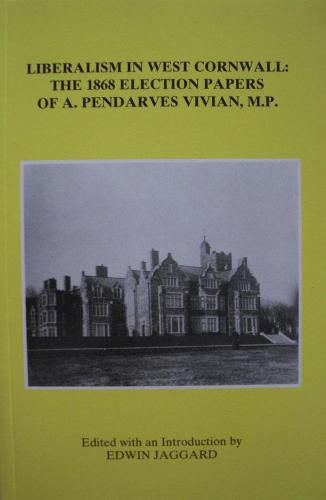Readings Newsletter
Become a Readings Member to make your shopping experience even easier.
Sign in or sign up for free!
You’re not far away from qualifying for FREE standard shipping within Australia
You’ve qualified for FREE standard shipping within Australia
The cart is loading…






Between 1832 and 1885 West Cornwall was highly unusual in the British electoral system. Throughout the period the division was never contested at a general election, and the Liberals maintained a stranglehold on both parliamentaryseats. Yet this apparent stability disguised an often turbulent reality of party manoeuvring and personal rivalries. Dr Jaggard’s book uncovers much that has been so far unknown about this phenomenon. The introduction surveysWest Cornwall politics between the First and Third Reform Acts, suggesting how the Liberals’ hegemony was established and maintained. Both the numerical strength of Methodism in the division, together with corrosive rivalries among the county’s Conservatives, played a part, but the papers suggest other factors at work too. Prominent among them immediately after 1867 was the Liberal party’s organisation, and the prominence within it of men of new wealth such as the miner-banker J M Williams. As a snapshot of the mid-Victorian electoral system in action the papers widen our understanding of local and national politics, particularly reasons for the electoral success of the Gladstonian Liberal party.
$9.00 standard shipping within Australia
FREE standard shipping within Australia for orders over $100.00
Express & International shipping calculated at checkout
Between 1832 and 1885 West Cornwall was highly unusual in the British electoral system. Throughout the period the division was never contested at a general election, and the Liberals maintained a stranglehold on both parliamentaryseats. Yet this apparent stability disguised an often turbulent reality of party manoeuvring and personal rivalries. Dr Jaggard’s book uncovers much that has been so far unknown about this phenomenon. The introduction surveysWest Cornwall politics between the First and Third Reform Acts, suggesting how the Liberals’ hegemony was established and maintained. Both the numerical strength of Methodism in the division, together with corrosive rivalries among the county’s Conservatives, played a part, but the papers suggest other factors at work too. Prominent among them immediately after 1867 was the Liberal party’s organisation, and the prominence within it of men of new wealth such as the miner-banker J M Williams. As a snapshot of the mid-Victorian electoral system in action the papers widen our understanding of local and national politics, particularly reasons for the electoral success of the Gladstonian Liberal party.